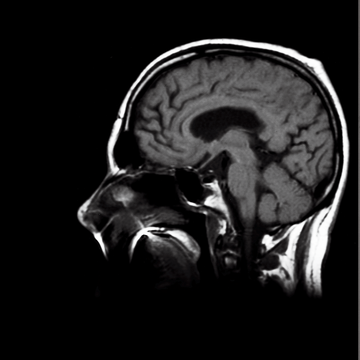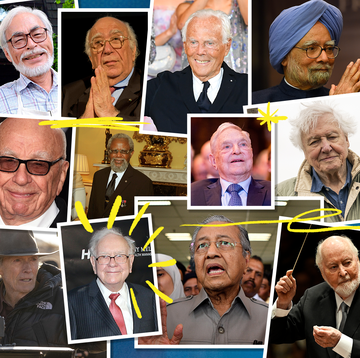- Matt Oliver, 45, began experiencing Alzheimer's symptoms in his 30s
- Many in Oliver's family have been impacted by the form of dementia due to genetics
- People with familial early onset Alzheimer's disease have a 50 percent chance of passing the genetic mutation onto their children
Matt Oliver lost his mother, brother, and sister to a form of early onset Alzheimer's disease. Then, at 41 years old, he learned that he has the irreversible condition, too.
The former army veteran and military contractor, now 45, is unable to drive and has difficulty speaking, according to Caters News Agency. The father of three struggles with speech, memory, and simple tasks, and has gone missing on several instances.
While some people can take steps to prevent Alzheimer's later in life, Oliver was destined from birth to inherit the disease. He carries the PSEN1 gene mutation for early onset Alzheimer's, which explains why so many members of his family have developed the condition, too.
“He's lost his mum and all her nine siblings, his brother, sister, grandma, great grandfather, and some cousins have had it or are fighting this horrible terminal disease right now,” says his partner and full-time caretaker Traci Ward, according to Caters.
Early Onset Alzheimer's and the PSEN1 Gene
Patients who are diagnosed with the disease before their 65th birthday — like these five guys — are known to have early onset Alzheimer's disease. Unfortunately, no one really knows why a disease associated with aging takes hold in the young.
Some people, however, have a unique form of the disease called early onset familial Alzheimer's, where the condition can be tied back to a genetic mutation — like in Oliver's case.
“This is very different than what you would call traditional Alzheimer’s,” Dr. Nikhil Palekar, medical director of the Stony Brook Center of Excellence for Alzheimer's Disease, told MensHealth.com. He explained that people diagnosed with Oliver's genetic condition have a mutation on one of three genes: PS1, PS2, or APP.
Researchers do not know what causes the variations and whether certain groups of people, like men, are at an increased risk. But Palekar says there could be a relationship with down syndrome, as both conditions are associated with an alteration on the same chromosome. People with down syndrome are more likely to develop dementia, too.
“If you have that genetic mutation, you have the illness basically,” he said.
Oliver and Ward are worried about his children developing the disease — and for good reason.
Palekar says that parents with the PS1 genetic mutation have a one in two shot of transferring it to their children, and that once someone has the gene, there is no way to prevent dementia.
How Common Is Oliver's Condition?
Early onset familial Alzheimer’s is extremely rare, and accounts for only five percent of all Alzheimer's cases, according to the University of California San Francisco Memory and Aging Center. Palekar’s estimate is even lower, at about one percent.
The Journal of American Geriatrics Society in February 2018 concluded that physical activity could slow cognitive decline for people who were at an increased risk of developing Alzheimer’s.
Palekar recommends hitting the gym 20 minutes a day, seven days a week to keep your brain healthy.
As for Oliver, he and Ward are speaking out about his condition to raise money through a YouCaring fundraiser so the Texan can visit his son, Robbie, in Germany, before it's too late.
"His symptoms have been getting worse over the past few months also," Ward said. “I am raising this money for him because his wish is to go to Germany to spend time with his son that he loves more than life itself."
They also hope Oliver’s story will bring more awareness and support for those dealing with the disease at a young age.


![early-onset Alzheimer's [image id='0f1e0045-6cbb-4b9b-b3a0-b2ab785723c2' mediaId='cf5b0c5c-09c4-49fc-952e-82c25371d5a8' align='center' size='medium' share='true' caption='Matt Oliver began experiencing Alzheimer’s symptoms in his 30s.' expand='' crop='original'][/image]](https://hips.hearstapps.com/hmg-prod/images/1-caters-army-vet-early-alzheimers-20-1524077256.jpg?crop=1xw:1xh;center,top&resize=980:*)












